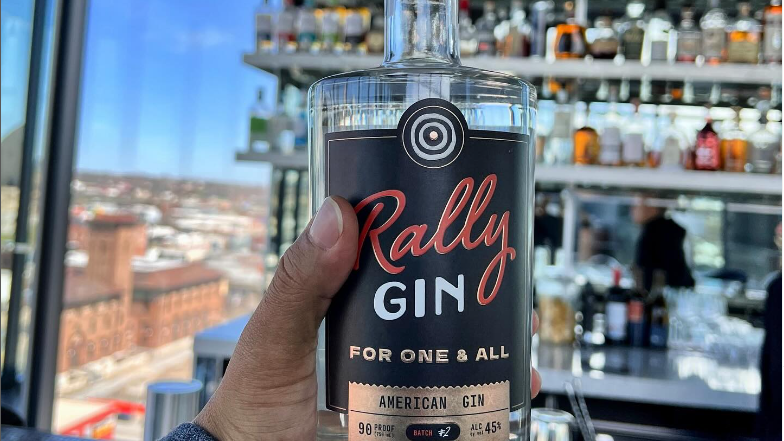 In spite of the question marks over its US brewing division, SABMiller exceeded expectations when it reported its first half results last week. Chris Brook-Carter analyses the results and what they tell us about how the company’s transformation from African brewer to multinational conglomerate is progressing.
In spite of the question marks over its US brewing division, SABMiller exceeded expectations when it reported its first half results last week. Chris Brook-Carter analyses the results and what they tell us about how the company’s transformation from African brewer to multinational conglomerate is progressing.
It’s been quite some journey for SABMiller, beginning in 1999 when the then South African Breweries listed on the London Stock Exchange. The move was made amongst great expectation that CEO Graham Mackay was on the look out for a company-transforming deal from the mature markets of Western Europe and the Americas.
After a series of highly successful smaller deals in emerging markets, those expectations were fulfilled last year when Mackay announced the acquisition of the giant US brewer, Miller Brewing, from the US conglomerate Philip Morris.
The move saw the renamed SABMiller leapfrog its rivals to become the second largest brewer in the world. But it also bought a new level of scrutiny from the investment community. And questions quickly loomed as to whether this once African-based brewer, which had transformed itself into an international expert in the emerging markets, had bitten off more than it could chew in Miller, a lumbering and declining giant in a stagnant US market.
It was no doubt with some satisfaction then that SABMiller beat all expectations last week in reporting its first half results. Net profit for the six months to the end of September soared to US$309m from US$160m a year earlier, while earnings before interest, taxes, goodwill and exceptional items rose to US$889m from US$553m a year earlier. Sales increased by 59% to US$6.33 billion.
How well do you really know your competitors?
Access the most comprehensive Company Profiles on the market, powered by GlobalData. Save hours of research. Gain competitive edge.

Thank you!
Your download email will arrive shortly
Not ready to buy yet? Download a free sample
We are confident about the unique quality of our Company Profiles. However, we want you to make the most beneficial decision for your business, so we offer a free sample that you can download by submitting the below form
By GlobalDataStripping away acquisitions, the figures still made for encouraging reading. Underlying organic growth was an impressive 21%, with beer volumes growing by 8% organically in Europe, with strong results in Russia and the Czech Republic. Overall volumes were up by 3.2% organically.
“I think the gratifying thing is that it [the earnings growth] has come from very strong organic performance, operating performance, in our big businesses,” said Mackay in an interview on cantos.com last week.
In particular, the questions of whether Miller’s troubles would adversely affect its parent company’s ability to perform globally were, for now at least, brushed aside.
Europe performed extremely well across the board, registering a 51% increase in EBITDA, with 27% organic growth in constant currency terms.
And, despite the continuingly competitive nature of the European market, Mackay seems to believe the company will deliver in the future too. “We anticipate continued growth in our key European markets, supported by favourable economic and structural trends as new countries enter the European Union,” said Mackay in a statement. “We build on our strong in-country positions to take advantage of the growing demand for international premium brands.”
And he confirmed that the integration of the newly acquired Italian brewer, Peroni, is “proceeding according to our expectations”.
In Asia the news was also good. The Chinese operations saw volume growth of 8%. And despite the impact of SARS, organic beer volumes increased by 3%. In India the company said that the integration of its joint venture with Shaw Wallace, which has made it the number-two brewer in the country, is underway and “business is performing to our initial expectations despite the high level of monsoon rainfall.”
In Latin America tougher questions were asked and despite remaining confident in the full year, half year EBITDA fell as the company struggled with carbonated soft drinks volumes. But that said, beer volumes were up by 4% and Mackay said: “Our efforts to stimulate further growth in beer consumption and a gradual recovery of the CSD profit pool will continue. Financial results for the second half of the year will benefit from our initiatives and more favourable comparisons with the weaker prior year period.”
Yet despite achieving all this, there is still a feeling that SABMiller is flattering to deceive a little. Critics of the company have pointed out that second-half figures cannot rely upon the currency movements that benefited the first half to such an extent. And neither will they get the sales boost from Italy and the US that is so traditionally associated with the strong summer months.
But Mackay has been adamant that this set of figures “in no way” relies on currency movements, and the organic figures bear him out.
No, the real issue remains Miller and the US market. For all Mackay’s achievements elsewhere, there are nagging doubts that Miller’s problems are just too big to swallow.
“Throughout 2003, subdued economic conditions, the Iraq conflict and poor weather in some areas combined to curtail growth in the US beer industry, resulting in an industry decline of 1.4% for the first nine months of the calendar year,” said SABMiller.
However, even within this context Miller’s own performance continued to be disappointing. Shipments carried on a decline that began in the early 1990s and on a pro forma basis domestic sales to retailers fell by 4.4%, whilst total volumes fell by 5.7% to 25m hls.
The company has pointed to an improving trend in Miller Lite, with sales to retailers down by only 1%. And Mackay has said that the management has begun to build a foundation for the stabilisation and long-term recovery of the business.
“We firmly believe that the combination of these efforts will result in a stabilisation of the Miller business within the timeframe of two to three years as previously described,” said Mackay.
However, there is no solid evidence of this turnaround at present and in the short term we have little to go on except the assurances of the company that the future holds more positive news for the US division.
But Mackay has asked to be judged on the long term and analysts seem to agree that unless you are after short-term profit, the company’s shares are worth holding on to. And with SABmiller shares increasing by 10% in the last three weeks and by some 58% since March, for the time being, investors seem to be happy to continue following Mackay down this extraordinary journey of transformation.






